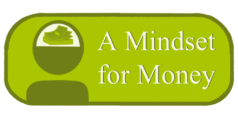
How Do I Start?
I hear from young people, as they start their first job, in the fast-food industry, while in high school, “They need responsible people to open or close the business, each day, for which they get extra pay!”
So, how do you rise to that position? The answer is simple. Do what the manager or supervisor asks of you. Yes, even take out the trash!
The Transition to Education
After you learn to be responsible and can see that it will lead to better pay, you will start to wonder, what next?
I hope you have read a lot of books by this point. Reading a wide range of books or articles will give you a broader understanding of the world around you.
It will prove useful as you pursue more education. Reading is a big part of your personal growth.
What Else Helps?
Look around you, every day, for potential jobs that appeal to you.
Then, ask those who work in those jobs how they came to be there. They will be flattered you asked and, unless you are the tenth caller that day, they will be willing to share what is required, such as education and certification.
Don’t Forget the Library
The library is the most underrated educational tool I know of.
They have reference librarians available to help. They can direct you to sources on an infinite number of topics.
If you are looking for education or what careers are available, that might interest you in the future, then start at the library, which has many sources for career choices.
If you want to focus on an industry, they have references on local companies in directories, such as the Sorkin’s Directory.
What About the Internet?
Yes, I know most folks just go to Google or Bing and do a web search. However, be sure to dig deep into the search results. And ask more questions to qualify your search.
Just to be sure, try looking in the library to fact check! Not everything on the internet is true.
There is YouTube, which has been a great resource for anyone trying to do anything that someone else decided to share on video.
I know the list goes on, including bloggers, etc.
Read About What Will Give You Marketable Skills
Read about motivation. Read about people skills, like communication.
Read about building your self-confidence.
Read about management skills, organization skills, time management skills, and leadership skills.
Reading Suggestions
While most of my blog posts relate to how you manage your income, I hope to help you keep as much as possible for a stable future and a comfortable retirement.
However, my real hope is that you can spend enough time reflecting on what you value in life that you can set goals to work toward finding a way to earn income doing what you really enjoy. And, with the right insights, you can control your spending with a meaningful budgeting concept.
The fact that I labeled this blog as “a mindset for money” would seem to indicate that money is my focus. However, money is the main tool available to us to provide for our needs. And money will be your means to be able to retire from the workforce. So, the question I ask is, “Do you try to learn how to make your money do more or do you just spend it until it is gone and work to get more?”
I know that sounds like a silly question. But the fact that over half the population of the United States has less than $1,000 in savings is a big concern. Many have come to count on credit cards for emergencies. That could mean trouble for them.
How we manage our money, our attitude, our philosophy on education, and our emphasis on good health habits will all accumulate to our mindset for money.
There are many other people that I will quote in future blogs that have voiced the same concerns. And I always advise you to seek out two or more sources to validate something that you may act upon, hopefully something positive.
Just because you may wonder where to start, I will list a few of the books that I have read myself to prepare materials for this blog site over the past year:
- The Richest Man in Babylon, by George S. Clason. “Money is plentiful for those who understand the simple laws which govern its acquisition.”
- The 7 Habits of Highly Effective People, by Stephen R. Covey. Habits are key elements to being effective. He notes, “…habit…the intersection of knowledge, skill, and desire…Knowledge is the theoretical paradigm, the what to do and the why. Skill is the how to do. And desire is the motivation, the want to do…creating a habit requires work in all three dimensions…It’s sometimes a painful process.”
- No More Mondays, by Dan Miller. “Success is never an accident. It typically starts as imagination, becomes a dream, stimulates a goal, grows into a plan of action—which then inevitably meets with opportunity. Don’t get stuck along the way.”
- The 9 Steps to Financial Freedom, by Suze Orman. “Your money will work for you, and you will always have enough—more than enough—when you give it energy, time, and understanding.”
- Think and Grow Rich, by Napoleon Hill. Andrew Carnegie challenged Napoleon talk to many of the most successful businessmen at that time to discover how they came by their wealth. He discovered some common threads. “…all achievement, all earned riches, have their beginning in an idea!”
- Rich Dad Poor Dad, by Robert T. Kiyosaki with Sharon L. Lechter, C.P.A. Robert explains the contrast between his rich dad, who nurtured his understanding of how to make money and invest it, and his poor dad, his real dad, who had a successful career but never learned how to make good investments. Two good quotes: “The fear of being different makes us do stupid things, like everyone else.” “Know the difference between an asset and a liability and buy assets.”
- The Total Money Makeover, by Dave Ramsey. Dave shares hard-earned knowledge about how to overcome debt and the money myths that got you there. He gives you the tools to gain back control of your money. I have been through his Financial Peace University; it was worth the cost. Lots of financial nuts and bolts to build a strong legacy for your family.
Listening Suggestions
I have been doing a lot of walking for my healthy habit plan. And it is more pleasant to listen as I walk. Using Spotify (although I have iTunes on my phone, as well) and my earbuds I have reunited with a couple of speakers from my past.
One is Jim Rohn. I had listened to his cassette tapes when my son was in high school and even he enjoyed listening to his down-to-earth humor and the simple truths he conveyed.
The second was Earl Nightengale. I listened to him on the radio back forty years ago. His short talks still ring true and helpful today!
Help Yourself
As I write to help you build a better mindset for money, I must stress the fact that you are the catalyst to make things go better in your life.
So much information is available to you. When you read and make a serious attempt to learn, then it becomes your knowledge, which is an important tool for you to build a better future!
Do the reading. Study what you want to know, what you need to know.
Help yourself to the knowledge that others are willing to share with you!
